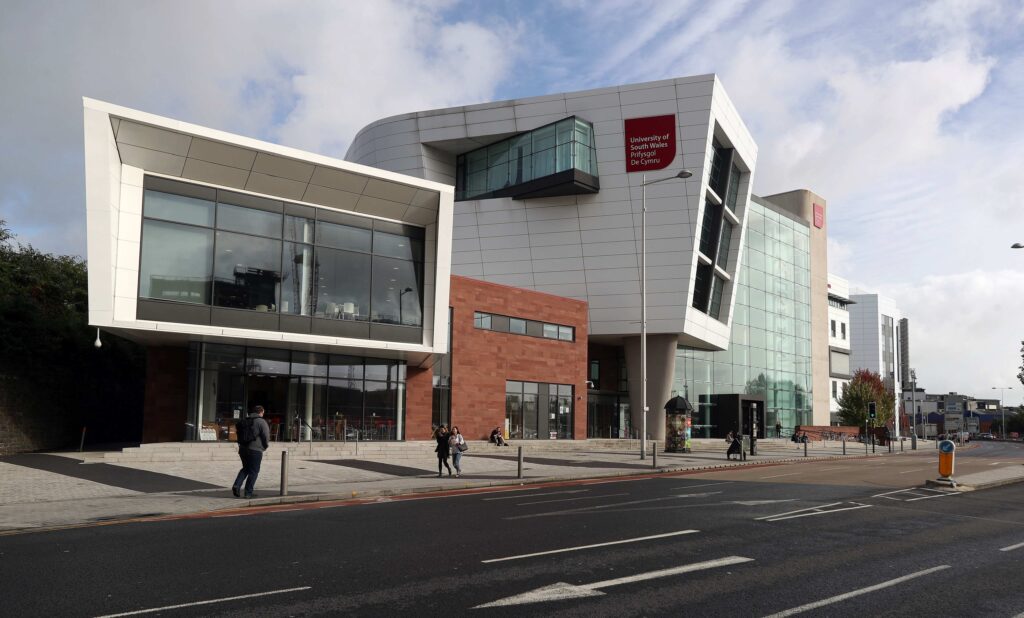Hefin David MS praises Welsh universities’ multifaceted contribution to Wales’ economy and future.
Many would likely argue that the primary contribution of universities in Wales lies in providing higher education, equipping graduates with a depth of knowledge and higher-level skills across a broad spectrum of subject areas from architecture to zoology.
But beyond this, the broader role of universities includes driving research and innovation, engaging with businesses and contributing to the social fabric of our nation – to the extent that Wales would be an entirely different country without the presence of our outstanding universities.
As Chair of the Cross-Party Group on Universities, I have the benefit of engaging with university leaders, student representatives, researchers and wider sector colleagues to discuss the challenges and opportunities facing our universities, and the chance to highlight these to Welsh Government and beyond.
What are we looking for from our universities?
Universities have a crucial role to play in shaping the future of individuals and our society as a whole.
I am a firm believer in the power of higher education to change lives.
Our universities hold the keys to unlocking our future potential, while preserving our history and championing our national identity.
Universities provide skills training in emerging technologies such as advanced manufacturing and medical tech. They also teach critical thinking skills required to grapple with moral and ethical challenges such as Artificial Intelligence and climate change.
Beyond traditional undergraduate degree programmes, universities provide skills training in partnership with business, delivering short courses and degree apprenticeships. To keep pace with economic and technological change, Wales is going to need increasing numbers of graduates to ensure our workforce is highly skilled.
Universities are also key drivers of research and innovation. Universities’ fundamental research across disciplines leads to medical and scientific breakthroughs which positively impact the people and places of Wales. Universities also partner with businesses across Wales to support their innovation, helping to develop new products and services which boost their business and bring in economic benefits. Universities themselves are large employers, and generate over £5bn for the Welsh economy every year.
Welsh universities also play a vital role in safeguarding and championing our history and culture. From research into our language and educating future leaders in the creative arts, to delivering public lectures and working with local communities to enhance and protect assets such as historical buildings.
Syniadau uchelgeisiol, awdurdodol a mentrus.
Ymunwch â ni i gyfrannu at wneud Cymru gwell.
More broadly, Welsh universities engage with their communities and deliver a variety of civic mission activities in partnership with local stakeholders. The Civic Mission Framework for Wales demonstrates the ways in which universities are working to alleviate poverty, remove barriers to higher education, engage with local businesses and encourage active citizenship.
Our universities hold the keys to unlocking our future potential, while preserving our history and championing our national identity.
What are the challenges?
Universities are funded via tuition fees, and government grants.
Fees and grants no longer cover the cost of teaching home undergraduates or research and innovation activity. In real terms, the tuition fee is now worth around £6k per head in 2012 prices, but costs have gone up. Universities have depended upon their ability to cross-subsidise teaching costs with income from international student fees.
The same is true for research and innovation. Government grants underpin basic research in universities, enabling universities to secure competitive grant funding from external sources such as research councils and international programmes like Horizon Europe. These grants often involve elements of match-funding, so universities do not recover the full economic cost of undertaking research. Therefore the ability to cross-subsidise research via income from international student fees is also keeping R&I activity afloat.
Without a change in approach, we risk losing all of the multiple benefits delivered by our universities.
However, there is increasing volatility and uncertainty in the international recruitment market. UK Government policy decisions, along with shifts in the global education environment, have impacted recruitment of students across the world.
The Cross-Party Group on Universities recently heard from Universities UK CEO Vivienne Stern on analysis undertaken by PwC suggesting that if the growth rate for international students were to decrease by 20 percentage points relative to university forecasts in 2024–25, 80% of UK universities could be in deficit in 2025–26, 61 percentage points higher than forecast.
While Wales remains open to the world, our international reputation is closely tied to that of the UK, which is shaped by UK Government policy and rhetoric. The economic contribution of international students goes far beyond their tuition fees. Universities Wales found that international students across Wales boost our economy by a huge £661m per year. International students are net contributors to our NHS, and make significant contributions to our wider economy.
Our higher education system is one of our most valuable assets and we must work to preserve its benefits and contributions.
In the short-term, we need to be clear that Wales is open to international students. Programmes such as Global Wales continue to put Wales on the map as a fantastic place for international study.
In the longer term, the education sector and government must work together to address the fundamental funding challenges, including the unit of resource for part-time and full-time education, and to help maintain the talent and infrastructure being lost, or at risk of being lost, as a result of the pressures our institutions face.
Without a change in approach, we risk losing all of the multiple benefits delivered by our universities – essential research and innovation, economic underpinning, future-ready skills and knowledge, and important cultural and civic contributions.
All articles published on the welsh agenda are subject to IWA’s disclaimer. If you want to support our work tackling Wales’ key challenges, consider becoming a member.





